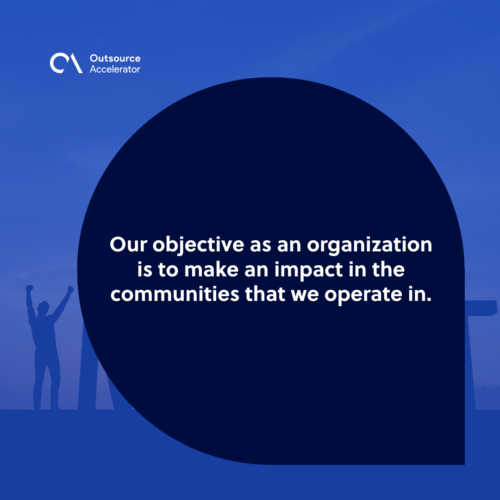The fast-growing South African BPO industry and Impact Sourcing with Webhelp’s Tammy Chetty

WebHelp
In this episode, Derek Gallimore chats with WebHelp South Africa’s managing director Tammy Chetty.
WebHelp is a 20-year-old French-owned business process outsourcing (BPO) firm that predominantly offers customer service – allowing them to offer various languages and varied skill sets to their clients in over 50 countries.
In the next 40 minutes, Derek and Tammy talk about how the Covid-19 pandemic created an opportunity for South Africa’s BPO industry to expand rapidly.
They also tackle impact sourcing and how it helps address youth unemployment in the country, as well as the relevant topic of work-from-home work arrangements and the future of work.
Silver lining
South African outsourcing is experiencing bullish growth and has been creating decent-paying jobs for the country’s youth.
“We are talking about 28 per cent year-on-year growth,” Tammy said.
She shared that during the pandemic, the BPO industry emerged as one of the most resilient sectors in the country. This became an opportunity for the outsourcing sector to capture the government’s support.
“It’s an extremely fast-growing sector in South Africa at the moment, [with] loads of opportunities coming into the country. It’s a very exciting space to be. And it also is aligned with one of our government initiatives because the sector has the potential to absorb young unemployed people in the country.”
Since then, South Africa has experienced a “significant influx” of potential clients.
Impact sourcing
Tammy shares that while WebHelp greatly benefits from the abundance of job seekers in the country, the firm ensures that it contributes to nation-building.
“Our objective as an organization is to make an impact in the communities that we operate in,” Tammy said.
She said that whenever there are new vacancies within the organization, they offer opportunities to people who are most excluded from the formal economy.
WebHelp trains people and develops their skills to prepare them for full-time employment.
“We used to do about 15% to 20% of impact sourcing work, which means that we would take people that were really unskilled and put them through marketing programs and putting them into opportunities.”
Now, Tammy revealed that Webhelp is now trying to shift that to about 90%. “We are going to be taking all our entry-level people into upskilling programs and then place them into employment.”
Breaking bad rep
Despite the employment opportunities the outsourcing industry creates, it is shrouded with negative connotations and bad reputation.
WebHelp is among the new-age outsourcing firms that prove that the industry is not equated to poor working conditions and unfair wages.
Tammy shares that WebHelp’s offices are “very spacious and beautifully furnished.” The firm also offers competitive salary and benefits.
“I mean, just to give you an idea, our desk size is 1.2 meters apart. So, every agent has a 1.2 meter by 800 disk size, which is significant compared to many of the other operators that are out there,” she said.
Employee skills development is also a major aspect that WebHelp focuses on.
“We grow all our talent,” Tammy said.

She added that the company grooms their employees and puts them under development programs so they can assume team leadership roles.
“And so we have a proper progression path for all of our people from an impact sourcing perspective and talking about impact and communities,” Tammy explained.
WebHelp takes pride in the fact that 90% of their team leaders come from the company’s tenured population.
The future of work
While the pandemic propelled the BPO sector in South Africa to robust growth, Tammy shared that WebHelp also had to navigate through the changing work arrangements forced by government-imposed lockdowns.
She explained that “work from anywhere” is the basic concept of outsourcing. So long before firms all over the world started to adopt work-from-home strategies, the outsourcing industry was already doing it.
“Now you can do it from home and you can do it from home anywhere in the world,” Tammy said.
During the thick of the pandemic, WebHelp transitioned 30% to 40% of its staff to work-from-home (WFH) arrangements. However, post-COVID, Tammy said, their clients prefer to have their employees report back onsite.
Tammy explains that WebHelp is constantly looking at a middle-ground that would cater to both employees and clients. Finding the perfect post-pandemic work arrangement is still a work in progress.
“We’re trying to find the happy medium. I’m not sure that we’ve found it yet. I think we’re certainly starting to agree that support roles can definitely continue to work from home. But from an operational perspective, where we have advice is from what percentage of people is the right amount,” Tammy noted.
For WebHelp, it is important that the company constantly evolves with the demands of the changing workplace landscape.
Connect with Tammy through her LinkedIn profile.
You can also visit WebHelp and see more of the company’s work at https://webhelp.com/








 Independent
Independent




